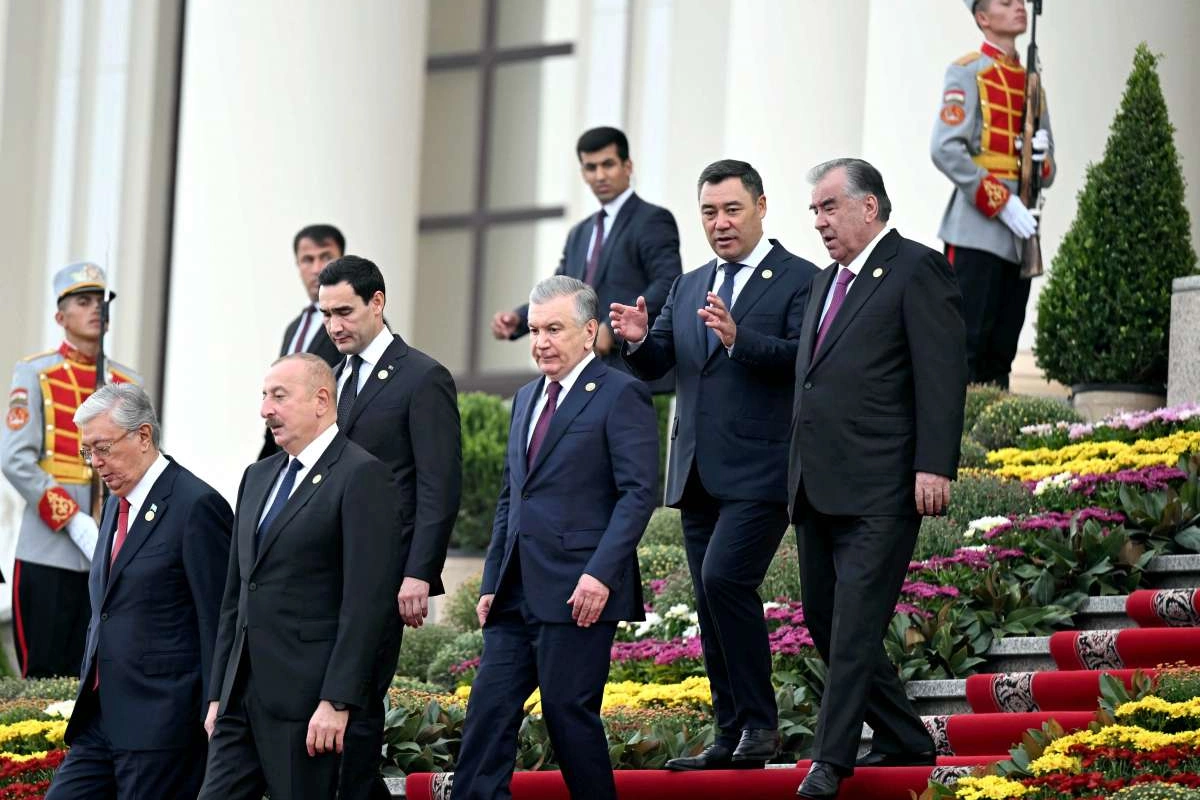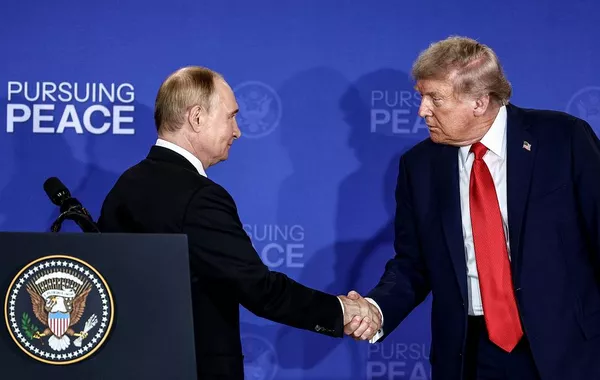
Amid concerns about security, energy, and water scarcity at the summit of the five Central Asian leaders and the Azerbaijani president, calls were made to cooperate as a region to handle these issues.
Image: president.kg
(RFE.RL) Calls to share scarce water resources and cooperate on security issues featured heavily in a two-day summit of the five Central Asian leaders that wrapped up in Dushanbe on September 15.
Joining the heads of Uzbekistan, Turkmenistan, Tajikistan, Kyrgyzstan, and Kazakhstan for the fifth annual Consultative Meeting of the Leaders of Central Asia was Azerbaijani President Ilham Aliyev, invited as an “honored guest.”
Amid perceived threats from the Taliban in Afghanistan and persistent droughts and water shortages in the entire region, discussions at the Tajik-hosted event revolved around border security and water-energy resource management.
Tajik President Emomali Rahmon expressed concerns about what he called two “alarming” recent attempts by militants affiliated with Jamaat Ansarrulah, an Islamist extremist group based in Afghanistan that is considered a terrorist organization by Dushanbe, to breach his country’s border.
"We have faced attempts by various terrorist groups to break through and illegally cross the state border. They aimed to commit a series of terrorist attacks in the capital and other regions of Tajikistan," he claimed.
Tajikistan said on September 6 that it had killed three members of Jamaat Ansarrulah, which is made up mostly of ethnic Tajiks and aims to overthrow the Tajik government, as they attempted to enter the country in late August.
Kyrgyz President Sadyr Japarov emphasized the region's growing energy and water challenges in recent years, noting increased electricity consumption during harsh winters and a scarcity of water resources in summer.
"I propose to begin work on renewing and improving cooperation within the framework of the 1998 agreement on the use of water and energy resources of the Naryn/Syr-Darya [basin] between Kazakhstan, Kyrgyzstan, Uzbekistan, and Tajikistan, which provides for a balanced exchange of water and energy resources," he said.
Despite that deal on the balanced use of transboundary river-water potential signed 25 years ago, compliance with it has waned in Central Asia as water becomes more scarce.
Kazakh President Qasym-Jomart Toqaev called for an action plan to be created to increase industrial cooperation among the Central Asian states. He said the plan would create a closed cycle of production for specific types of goods, with the potential to export them outside the region.
Uzbek President Shavkat Mirziyoev suggested the formation of a free-trade zone without exceptions or restrictions in order to increase trade turnover.
"We have faced attempts by various terrorist groups to break through and illegally cross the state border. They aimed to commit a series of terrorist attacks in the capital and other regions of Tajikistan," he claimed.
Tajikistan said on September 6 that it had killed three members of Jamaat Ansarrulah, which is made up mostly of ethnic Tajiks and aims to overthrow the Tajik government, as they attempted to enter the country in late August.
Kyrgyz President Sadyr Japarov emphasized the region's growing energy and water challenges in recent years, noting increased electricity consumption during harsh winters and a scarcity of water resources in summer.
"I propose to begin work on renewing and improving cooperation within the framework of the 1998 agreement on the use of water and energy resources of the Naryn/Syr-Darya [basin] between Kazakhstan, Kyrgyzstan, Uzbekistan, and Tajikistan, which provides for a balanced exchange of water and energy resources," he said.
Despite that deal on the balanced use of transboundary river-water potential signed 25 years ago, compliance with it has waned in Central Asia as water becomes more scarce.
Kazakh President Qasym-Jomart Toqaev called for an action plan to be created to increase industrial cooperation among the Central Asian states. He said the plan would create a closed cycle of production for specific types of goods, with the potential to export them outside the region.
Uzbek President Shavkat Mirziyoev suggested the formation of a free-trade zone without exceptions or restrictions in order to increase trade turnover.
Share on social media
